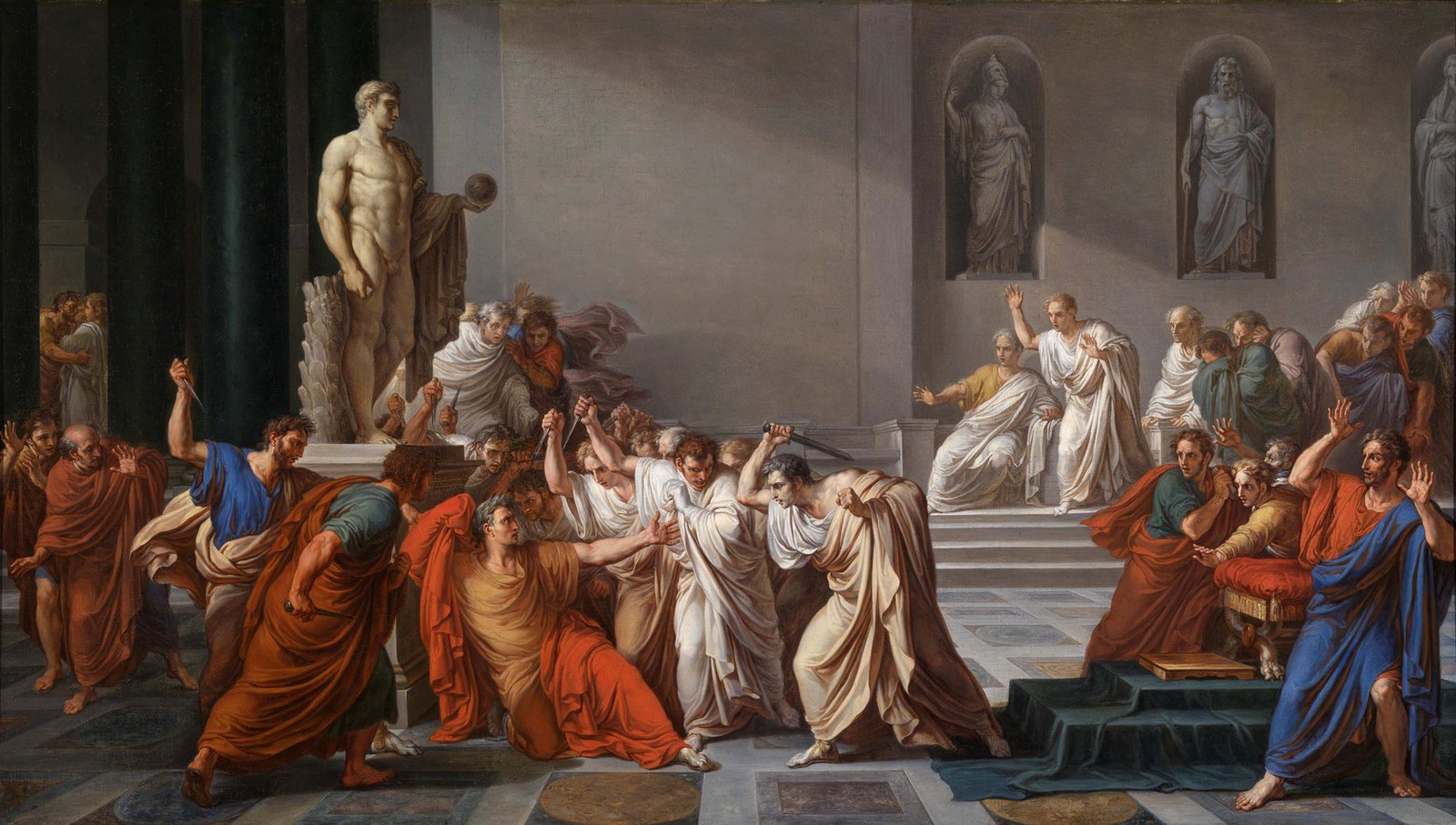44 BC: Julius Caesar’s Assassination
On the 15th of March, 44 BC, one of the most famous assassinations in history took place – the assassination of Julius Caesar. Julius Caesar, the Roman dictator, was betrayed and killed by a group of senators, including Brutus and Cassius. This treacherous act occurred in the Theatre of Pompey in Rome, where Caesar was stabbed a shocking 23 times.
The assassination of Julius Caesar was a pivotal moment in Roman history. It marked the end of the Roman Republic and paved the way for the rise of the Roman Empire. The event had far-reaching consequences, plunging Rome into a series of civil wars and ultimately reshaping the course of Western civilization.
The Conspiracy
The plot to assassinate Julius Caesar was hatched by a group of senators who feared his growing power and influence. Led by Brutus and Cassius, the conspirators believed that by eliminating Caesar, they could restore the traditional Roman Republic.
Despite warnings and omens, Caesar proceeded to the Theatre of Pompey on that fateful day. As he took his seat, the senators surrounded him, pretending to pay their respects. Suddenly, they attacked, stabbing Caesar repeatedly. His last words, “Et tu, Brute?” (And you, Brutus?), have become immortalized in literature and drama.
The Aftermath
Following Julius Caesar’s assassination, Rome was thrown into chaos. The power struggle that ensued led to a series of civil wars, known as the Roman Civil War. Eventually, Caesar’s adopted heir, Octavian, emerged victorious and became the first Roman Emperor, taking on the name Augustus.
The assassination of Julius Caesar had a profound impact on Roman society and politics. It marked the end of the Roman Republic, which had existed for nearly five centuries, and the beginning of the Roman Empire. The event also inspired countless works of literature, including Shakespeare’s famous play “Julius Caesar.”
To learn more about Julius Caesar’s assassination and its historical significance, you can refer to the following external references:
The assassination of Julius Caesar is a significant event that shaped the course of Roman and world history. It serves as a reminder of the complexities of politics, power, and betrayal.

